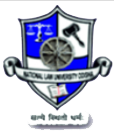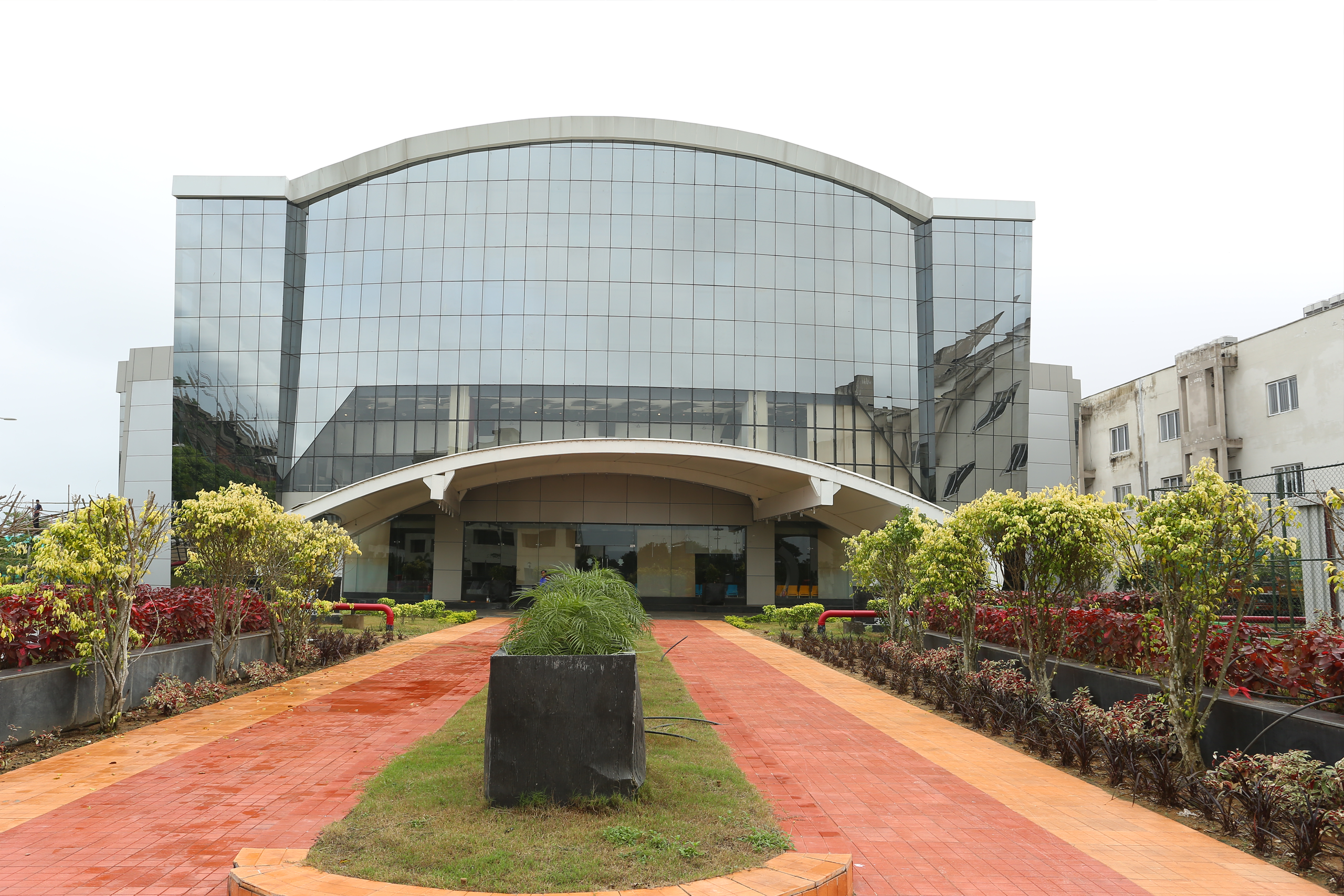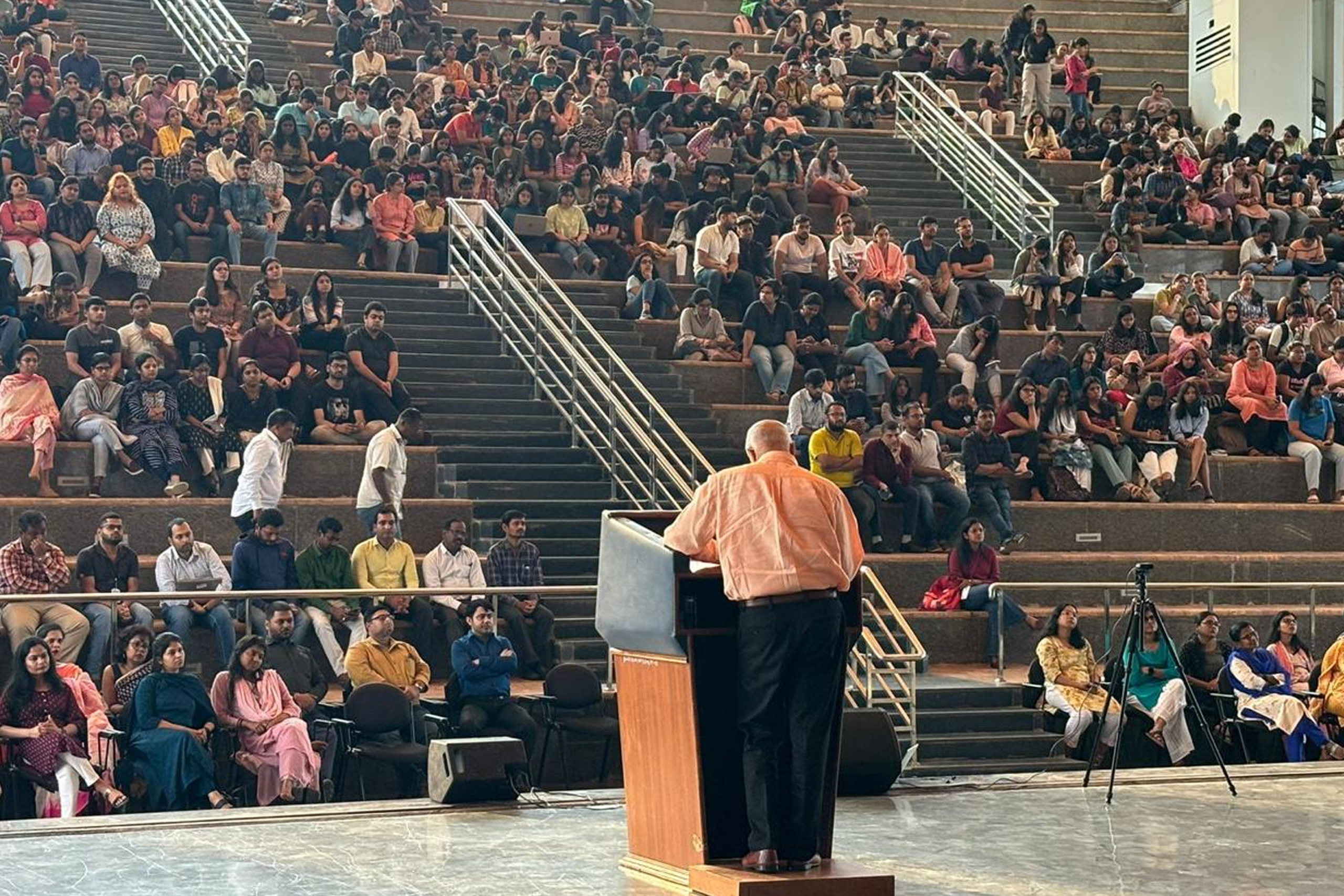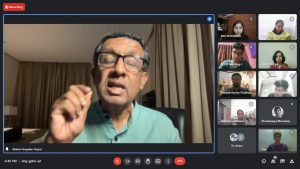CLS Constitution Day Lecture on “Revisiting the Kesavananda Bharati and the Basic Structure Doctrine in Contemporary Times”
29 Nov 2022
Date: 26th November 2022?????????????????????????? Venue: Google Meet (Online)<
?The Constitutional Law Society of National Law University Odisha successfully organized the Lectureon the Constitution Day topic “Revisiting the Kesavananda Bharati and the Basic Structure Doctrine in Contemporary Times”. <In 1973, the Supreme Court propounded the Doctrine of Basic Structure, aimed at curbing transgressions of the fundamental ethos of the Indian Constitution. But in the past 50 years,the Judiciary is still not without ambiguity on the question as to what exactly the term ‘Basic Structure’ constitutes. The enlargement of the scope of the doctrine puts at risk crucial legislation and executive actions.The question that now needs to be answered is if the basic structure doctrine which claims to preserve the core values of the Constitution’s basic structure, has itself proved to be against the structure of the original Constitution by striking at, and majorly obliterating, the doctrine of separation of powers, which is a core feature of the original Constitution by way of being judicial excess?As several legislations get tested on the pedestal of basic structure, and as the doctrine itself reaches 50 years of operation, it becomes pertinent to discuss the developments in light of Constitutional theory and jurisprudence. The lecture was delivered by Prof. Mohan Gopal and Mr. Shrutanjaya Bharadwaj.<
Prof. Mohan Gopal <had been the Director of the National Judicial Academy. He is also the founder Chair of the National Court Management Systems Committee of the Supreme Court of India. Prof. Gopal is the former Director (Vice-Chancellor) of the National Law School of India, Bengaluru. He continues to work actively on current judicial and legal issues and reform of legal and judicial institutions. <
Mr. Shrutanjaya Bharadwaj<?s a practicing advocate at the Supreme Court. His practice areas are constitutional law, criminal law, service law, and arbitration law. He completed his B.A., LL.B. (Hons.) from the National Law University, Delhi, and his LL.M. in Constitutional Law, Media Law, and Human Rights from the University of Michigan Law School. He also served as visiting faculty to several esteemed institutions such as the University of Delhi (Faculty of Law), the National Law School of India University, Bengaluru, and his alma mater, the National Law University, Delhi.
The lecture started with the introduction of the speakers to all the listeners. After that Mr. Shrutanjaya Bharadwaj<?ade his opening remarks and beautifully puts across his points to the listeners. He started by telling about the ongoing debate between Justice Pardiwala and Justice Bhatt. He does not believe in removing the entire concept of doctrine but gave 3 aspects regarding the same. He started out by saying that the Idea of the constitution in itself is anti-democratic because people elect their representatives but the constitution decides what these representatives can do or cannot do.?He said the answer to the same is 2-fold. Firstly, Constitution was made by the people and people have put these restrictions. Secondly, People provided for an amendment procedure in constitution to amend as and when needed. He said, the main question in Kesavananda Bharti case was that is the amending power of government is unlimited, moreover he also states about Justice Pardiwala says judges who are unelected are stopping the elected members from dealing with this and saying outside their capacity. He then tells the 3 aspects that he wanted to talk about, the first being that the court stating that doctrine does not apply to amendments before Kesavananda Bharti in his understanding does not make sense and if implemented retrospectively will create a lot of chaos. Secondly, he said that does the basic structure doctrine apply to the original provisions of the constitution on which he concludes that original provisions could not be challenged? Thirdly, is it only constitutional amendments that can be challenged or other legislation actions can be challenged as well on which he said that yes laws can be challenged directly if they violate constitutional principles. He also put the point of the doctrine of arbitrariness in the same and says the debate is futile on the last aspect.
After the insightful session by Mr. Shrutanjaya Bharadwaj<, Prof. Mohan Gopal <took the floor and expanded on his understanding of the issue. He started with the need to read the complete judgment of KesavanandaBharti and told its importance to all. Then he told he will be elaborating on 3 points on the topic. Firstly, what is the constitution? Secondly, what is his understanding of the constitution and thirdly, place his opinion on the doctrine by his meaning of the constitution. He says the constitution is the process by which India is created or the way by which India will be created. He says that in the preamble it is written that we the people of India has solemnly resolved to constitute, which means people have with consensus constituted the constitution this is one of the reasons for the long run of the constitution. He looks at the Constitution of India as an incredible and unique process by which common people constitute the idea of India. Further, 4 things required for peaceful living i.e., liberty equality dignity and fraternity are put forward by him. He also refuted the point that the Constitution is anti-democratic.QuotingJustice Kapadia from the famous case of M. Nagaraj in which he said every part of the constitution has a feature but some features are essential which gives the constitution is identity and we are using basic structure doctrine to fulfill our present needs and basic structure doctrine will never go but will get changed according to time.
After the speakers completed a short question-answer round happened in which some thoughtful questions were asked by the audience and satisfactory responses were given by the speakers. Ms. Rishika Khare gave the concluding remarks by thanking the guest speakers, the Vice Chancellor and the attendees.






